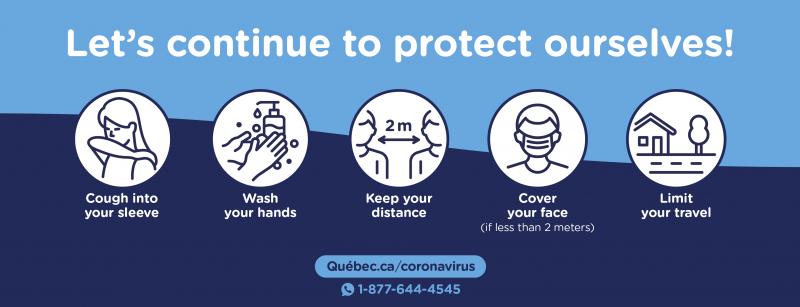
Information about COVID-19
The CISSS de la Montérégie-Ouest is monitoring the coronavirus (COVID-19) situation very closely. We have created this page as a central resource to answer all your questions.
For the latest developments, please visit the website of the Ministère de la Santé et des Services sociaux; the information on that page is updated regularly.
Learn about the measures in force.
For the number of cases in the Montérégie region, you can check the Direction de la santé publique de la Montérégie Facebook page.
The MSSS has also produced a Self-Care Guide - COVID-19 designed to help citizens make the best possible decisions for their own health and the health of their loved ones during the COVID-19 pandemic.
Long COVID
If you are still experiencing symptoms or aftereffects of COVID-19 more than four weeks after your initial infection, there are resources available to you. It is strongly recommended that you consult your doctor first.
For more information about long COVID, click here.
Are you feeling stressed, anxious or depressed?
You’re not alone. The current pandemic can affect people differently, both physically and mentally. Various resources are available to help you:
Consult our COVID-19 toolbox for the signs of distress and for advice about how to take care of yourself and/or your loved ones and to help you feel better.
Getting tested
For more information consult this page.
Vaccination against COVID-19 - BY APPOINTMENT
The COVID-19 vaccination campaign is currently underway in Montérégie. To learn more, visit Vaccination against COVID-19 | Santé Montérégie Portal.
To make an appointment:
To make an appointment, please visit quebec.ca/vaccinCOVID.
If you are unable to do this online or if you are having difficulty, please ask a relative or call 1 877-644-4545.